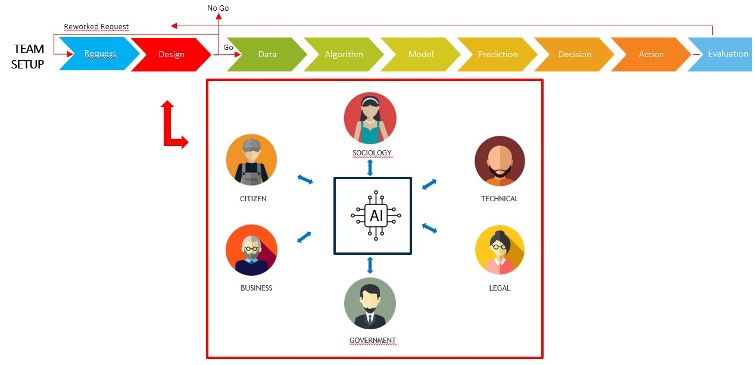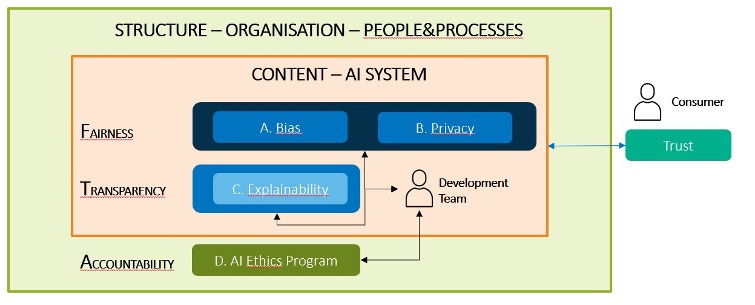We need to take active steps towards an ethical AI
What does AI have in story for us in the future?
.png)
On October 28, 2022, Belgian Federal Deputy Prime Ministers Pierre-Yves Dermagne and Petra De Sutter as well as Belgian Federal State Secretary for Digitalization Mathieu Michel launched the national convergence plan for the development of artificial intelligence. I think it’s absolutely fantastic that ethical AI takes up a central position in this new plan.
Today, however, too many AI developers and companies still see business and organizational “ethics” as something subjective, or even as a wishy-washy term. But nothing could be less true. Ethical beliefs may differ contextually from person to person, but ethics itself is based on human rights. And these are anything but unclear.
So, can't we just wait for a legal framework, then, and for now just quickly move forward with our innovative developments? I'm afraid not.
Today, there is still too much uncertainty and not enough transparency in the field of data use, AI and autonomous decisions. Even more so, because of the hidden nature of the technology and its rapid developments, the knowledge gap between developer and user only seems to be increasing.
Can't we just follow the well-known practices, such as setting up a "code of conduct" or an "ethical board", as the larger AI players seem to be doing? Unfortunately not. These “ethics-washing” techniques lack any real impact whatsoever.
To help create a society in which our AI systems can gain further trust and thus become more socially accepted by the end user, every company should take these crucial active steps:
- An ethical dialogue
- An ethical framework
- A focus on content
- A focus on the organization
An ethical dialogue
In the design phase, and focusing on their external relationships, companies should initiate a bi-directional dialogue with citizens, in a crystal clear and understandable language. First and foremost, it is essential that everyone in the business, as well as its users, understands how the AI will work in the solution and what its possibilities and limitations will be. Based on this dialogue, it is important that companies find a transparent balance between innovation and ethics before they embark upon the hunt for profit. When they enter the development phase, it is crucial that a company already thinks about the content of the information leaflet that will accompany its AI service or product. You could compare that to the Patient Information Leaflet (PIL) that each medicine package contains, which is actually not a legal requirement, but strongly recommended from a moral perspective and brand experience.

An ethical framework
Once the development project starts, it is important - from an internal focus - that companies can explain how they have developed their systems responsibly in each step of the process. And that they can justify these actions in an understandable language. An ethical framework could be really useful here: one in which a clear distinction is made between the steps required to ethically substantiate the content of the system and the organization of the company to support the ethical development.

A focus on content
For this purpose, various tools and technologies have already been developed in previous years to ensure points such as fairness and transparency at every stage of the process. Today, we notice that companies that incorporate ethics often limit themselves to the content side, thereby indirectly placing full ethical responsibility with the developers. However, despite some steps in the right direction, this is a bottom-up approach that is not only incomplete but also incorrect in many aspects.
A focus on the organization
Perhaps the most important aspect of ethical AI is that it ought to be the responsibility of everyone in the company. It truly must be ingrained top-down into the DNA of the company. There needs to be an ethical framework that offers crystal clear guidelines on how the entire structure of the organization must operate in an ethically responsible manner. These recommendations must also include clear descriptions of the various responsibilities. Such a vision should be initiated and dispersed from the top down.
These steps, frameworks and processes should sound like music to the ears of any company working with AI and putting ethics high on the agenda.
This is one perspective taken from our earlier article: These are the most important AI trends, according to top AI experts

.jpg)
.svg)





%20%20%20(1).jpg)
